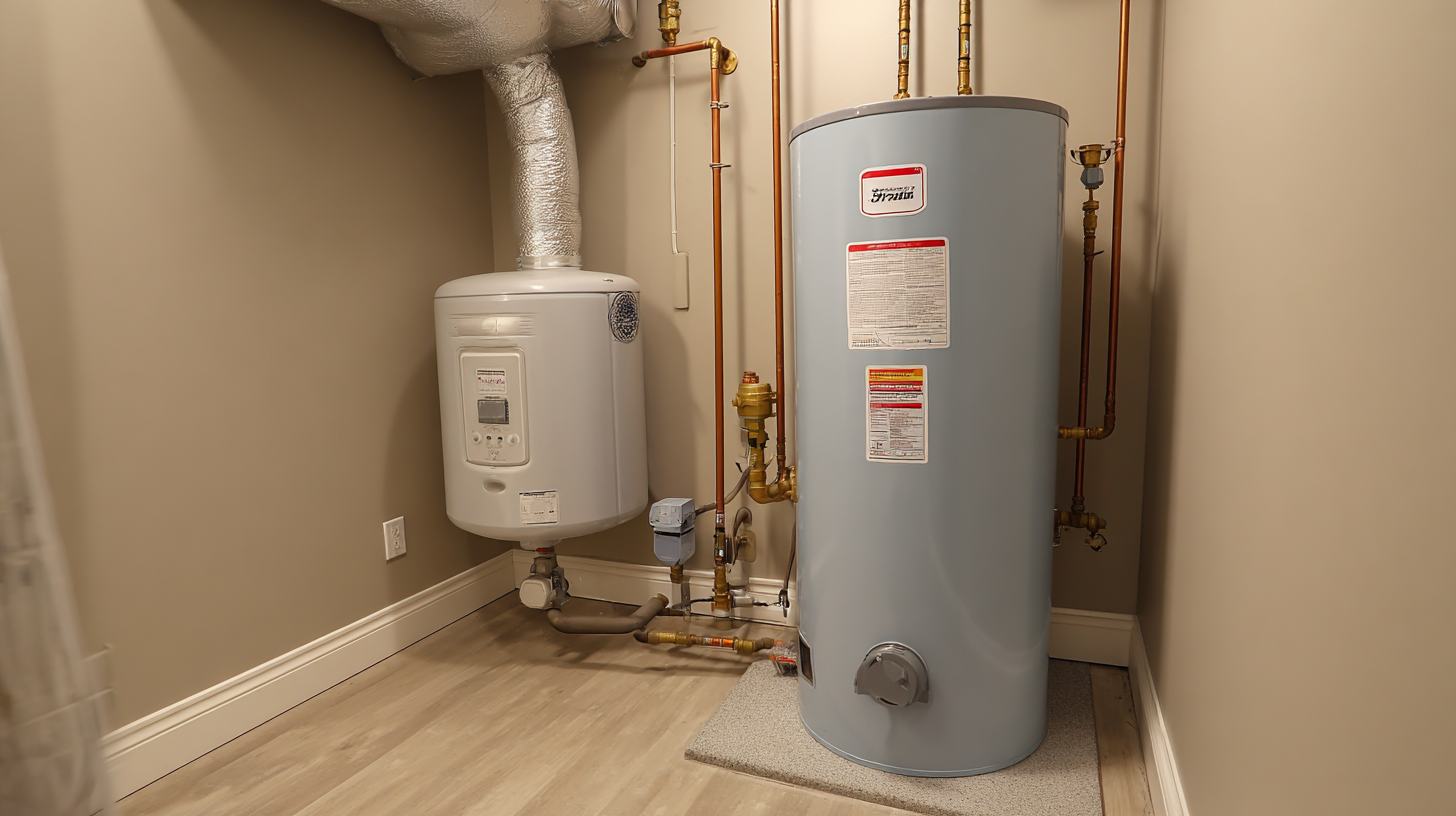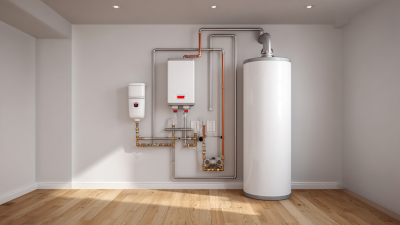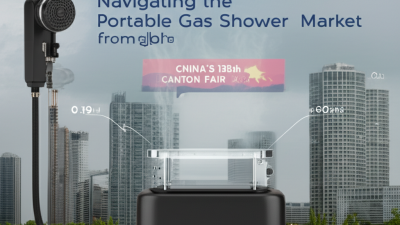
In recent years, homeowners have increasingly turned to gas water heaters as a preferable option for efficient home heating due to their performance and cost-effectiveness. According to the U.S. Department of Energy, gas water heaters typically heat water faster than their electric counterparts and can provide significant savings on energy bills. Specifically, gas water heaters can be up to 34% more efficient in terms of operational costs compared to electric models (American Society of Heating, Refrigerating and Air-Conditioning Engineers).
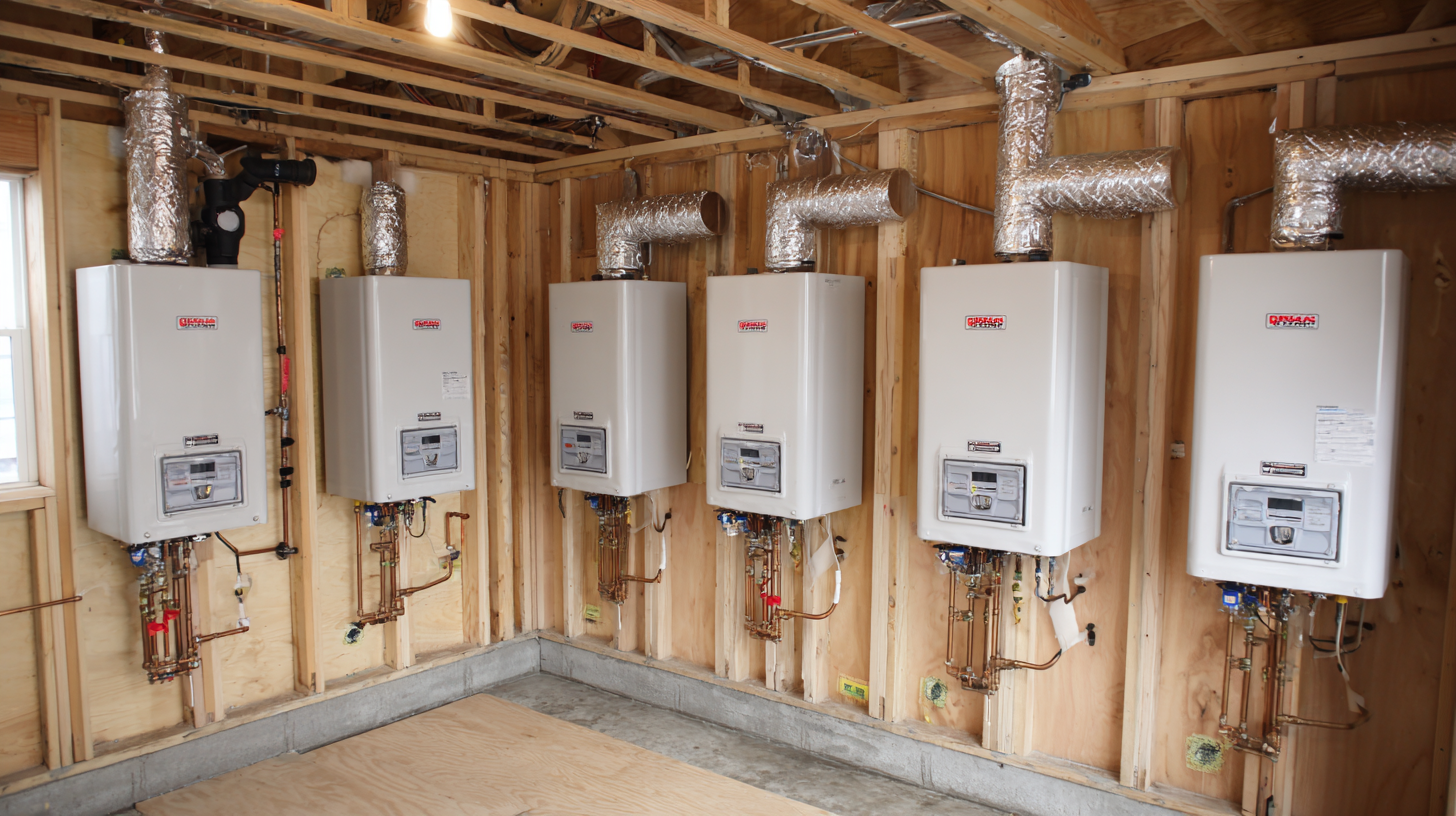
With advancements in technology, modern gas water heaters are equipped with improved insulation and energy-saving features that further enhance efficiency and minimize energy waste. This article aims to provide a comprehensive guide on the benefits of gas water heaters, exploring their advantages, installation considerations, and maintenance tips to help homeowners make informed decisions about their heating solutions.
Gas water heaters offer several key advantages for enhancing home efficiency. One of the most significant benefits is their ability to provide a continuous supply of hot water, making them ideal for larger households. Unlike traditional tank models, which can run out of hot water, gas units can heat water on demand, ensuring that families never run short during peak usage times. This on-demand functionality not only improves convenience but also helps in reducing energy wastage, as the unit only heats water when needed.
**Tips:** When considering a gas water heater, look for models equipped with high-efficiency ratings. These units consume less energy, leading to lower utility bills. Additionally, regular maintenance is crucial; check and clean burner assemblies and ensure proper ventilation to keep the system running smoothly and efficiently.
Moreover, gas water heaters tend to recover hot water more quickly than electric models. This speed enhances performance, especially in homes with multiple bathrooms or appliances requiring hot water simultaneously. As energy efficiency becomes more critical for homeowners, investing in a gas water heater presents an opportunity to improve overall performance while benefiting from available energy-saving tax credits.
**Tips:** Explore local or government incentives for upgrading to a more energy-efficient model; these rewards can significantly offset initial costs. Always consult with a professional to assess your home's specific hot water needs before making a purchase.
When evaluating the energy consumption of gas versus electric water heaters, it's essential to consider several key factors that impact efficiency and cost-effectiveness. According to a report by the U.S. Department of Energy, gas water heaters generally produce hot water more rapidly and with greater efficiency than their electric counterparts. Specifically, gas water heaters can heat water at a rate of 40-50 gallons per hour, compared to 20-25 gallons per hour for electric units. This faster recovery rate is particularly beneficial for households with high hot water demands, reducing wait times and enhancing comfort.
Furthermore, the energy consumption profile of these systems shows notable differences in long-term operational costs. The Energy Information Administration (EIA) indicates that homeowners can save up to 30% on their water heating costs when using a gas heater instead of an electric one. This is largely due to the lower cost of natural gas compared to electricity, which is expected to continue influencing consumer choices. Additionally, the efficiency ratings for gas heaters often range from 60% to 95%, depending on the model, while electric heaters typically hover around 90% to 100%. It is crucial for consumers to consider these factors when making informed decisions about their home heating needs.
When selecting a gas water heater for your home, understanding BTU (British Thermal Unit) ratings is essential for optimizing efficiency and performance. The BTU rating indicates how much heat a unit can produce in one hour. For instance, standard residential gas water heaters range from 30,000 to 50,000 BTUs. A higher BTU rating generally translates to quicker heating times and the ability to supply more hot water simultaneously, which is particularly important for larger households.
When evaluating the right size gas water heater, consider your household's peak hot water needs. According to the U.S. Department of Energy, a family of four typically requires a water heater with a capacity of at least 50 gallons. However, the higher the BTU rating, the faster you can recover hot water after heavy usage, making it crucial to analyze usage patterns.
Tips:
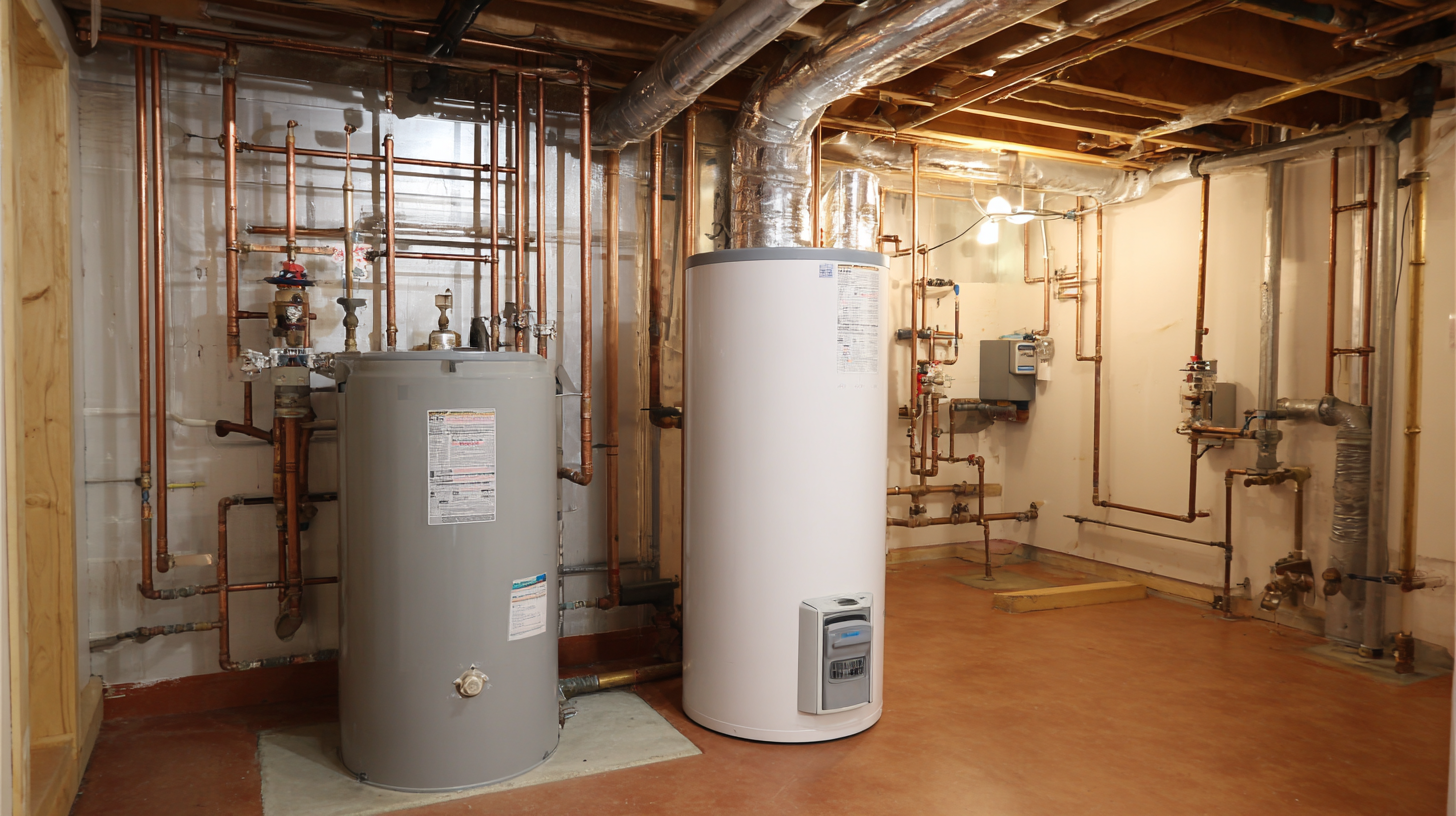
Gas water heaters are increasingly favored for home heating due to their potential for significant cost savings over time. According to the U.S. Department of Energy, water heating accounts for approximately 18% of a home's energy consumption. Transitioning to a gas water heater can lead to lower utility bills, as natural gas is often cheaper than electricity. The average cost of operating a gas water heater is about $200 per year compared to $300 for electric models, showcasing a potential annual savings of $100.
The initial installation price of gas water heaters can be higher, ranging from $1,000 to $1,500, depending on the model and labor costs. However, the long-term operational expenses typically outweigh these upfront costs. A study by the Energy Information Administration reveals that homes utilizing gas water heaters may recoup their installation costs within three to five years through lower energy bills. This efficiency not only contributes to individual savings but also promotes an overall reduction in energy consumption, making gas water heaters a wise investment for both budget-conscious homeowners and environmentally conscious consumers.
Gas water heaters are often favored in modern households not only for their efficiency but also for their relative environmental impact when compared to other heating options. While they do emit greenhouse gases, advancements in technology have led to the development of high-efficiency models that significantly reduce emissions. These heaters utilize precise combustion processes and advanced insulation, which means they consume less fuel while still providing adequate hot water. This efficiency translates to lower carbon footprints per unit of hot water produced.
Additionally, the sustainability aspect of gas water heaters plays a crucial role in their appeal. Natural gas, a key fuel source for these units, is often touted as a cleaner alternative to coal and oil, as it produces fewer pollutants and carbon dioxide when combusted. Furthermore, the extraction and transport of natural gas have become increasingly regulated, leading to improved safety measures and reduced environmental disturbances. By opting for a gas water heater, consumers can enjoy the benefits of on-demand hot water without compromising significantly on sustainability, especially when considering ongoing improvements in gas production and usage efficiency.
